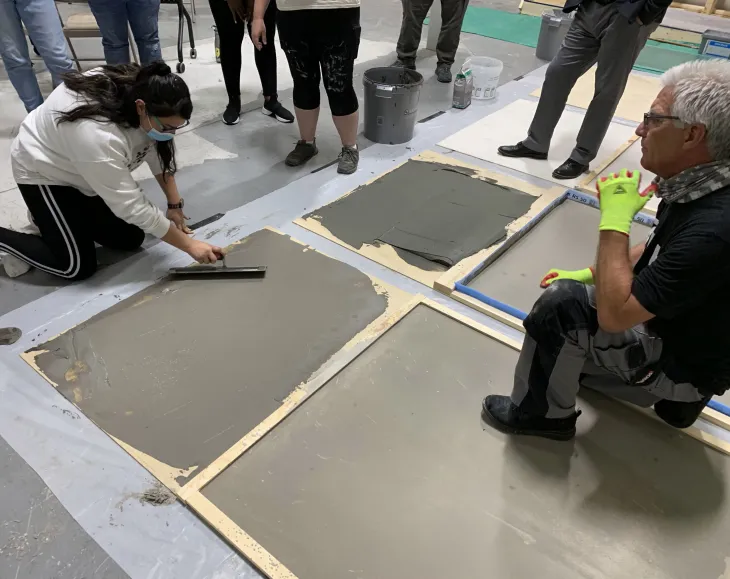How Ongoing Training Can Elevate Your Flooring Installation Business

In today’s competitive flooring market, technical skill alone is no longer enough. Clients want to hire professionals who stay current with materials, methods, tools, and industry standards. Continuing education and certifications don’t just boost your credibility — they increase your earning potential, reduce installation errors, and open the door to premium contracts.
Whether you specialize in luxury vinyl, engineered hardwood, carpet tiles, or epoxy systems, advancing your knowledge can transform your flooring career.
Why Ongoing Education Matters for Installers
The flooring industry evolves constantly. New adhesives, subfloor solutions, moisture barriers, and product innovations appear every year. Manufacturers frequently update their installation instructions. Without staying informed, you risk falling behind — or worse, losing out on work due to costly mistakes.
Certification programs and professional training courses:
-
Enhance technical installation skills
-
Keep you compliant with updated standards and codes
-
Improve your problem-solving on job sites
-
Build customer confidence
-
Help you win commercial and government contracts
“I used to rely on what I learned 10 years ago,” says Luis M., a flooring installer from North Carolina. “But after taking a certified vinyl plank course, I realized how much I didn’t know. Now I charge more — and clients trust me more.”
Best Certification Programs for Flooring Professionals
Several nationally recognized organizations and manufacturers offer training and certification that’s valued by clients, contractors, and suppliers alike.
NWFA (National Wood Flooring Association)
Ideal for wood flooring professionals. Offers courses on sanding, finishing, moisture testing, and advanced installation.
CFI (Certified Flooring Installers)
Provides hands-on certifications for carpet, hardwood, resilient flooring, and tile. Backed by the World Floor Covering Association (WFCA).
INSTALL (International Standards & Training Alliance)
Focuses on commercial flooring, including carpet tile, LVT, and safety flooring. Courses are union-supported and widely recognized.
Manufacturer Certifications
Brands like Armstrong, Shaw, and Mohawk offer their own training for installers. Getting certified by a manufacturer helps reduce liability and gain warranty-approved status.
Online Training Platforms
Websites like ProInstallerAcademy.com and NTCA University provide digital training and product-specific courses that fit into any schedule.
Topics Covered in Certification Courses

Most high-quality programs include:
-
Subfloor preparation and moisture mitigation
-
Adhesive systems and installation methods
-
Manufacturer-specific installation techniques
-
Jobsite safety and OSHA compliance
-
Client communication and site documentation
-
Tool and equipment usage best practices
Some advanced courses also teach project planning, blueprint reading, and how to train your own crew.
How Certification Pays Off
Investing in your education can bring big returns:
-
Higher Rates – Certified installers often earn 15–30% more per job
-
More Referrals – Clients and contractors prefer verified pros
-
Fewer Callbacks – Proper technique means fewer warranty claims
-
Job Site Access – Some commercial sites require certification for insurance purposes
-
Marketing Power – Displaying your certifications builds instant trust on your website and business cards
“I landed my first hospital flooring contract after getting certified in heat-welded sheet vinyl,” says Paula T., a CFI member. “They wouldn’t even look at uncertified bids.”
How to Get Started
Start by choosing a focus area — hardwood, LVP, carpet, or epoxy — and finding a course that matches your goals. Many courses are hybrid (online + in-person) and offered across the U.S. Some are even free or subsidized by trade groups.
If you’re managing a crew, enroll your team as well. A certified team is a selling point for high-value clients.
Stay Ahead, Stay Booked
The most successful flooring professionals treat learning as part of the job. In a competitive and changing field, your skills are your most valuable asset. Earning certifications shows you’re committed, serious, and ready to deliver top-tier results — every time.
